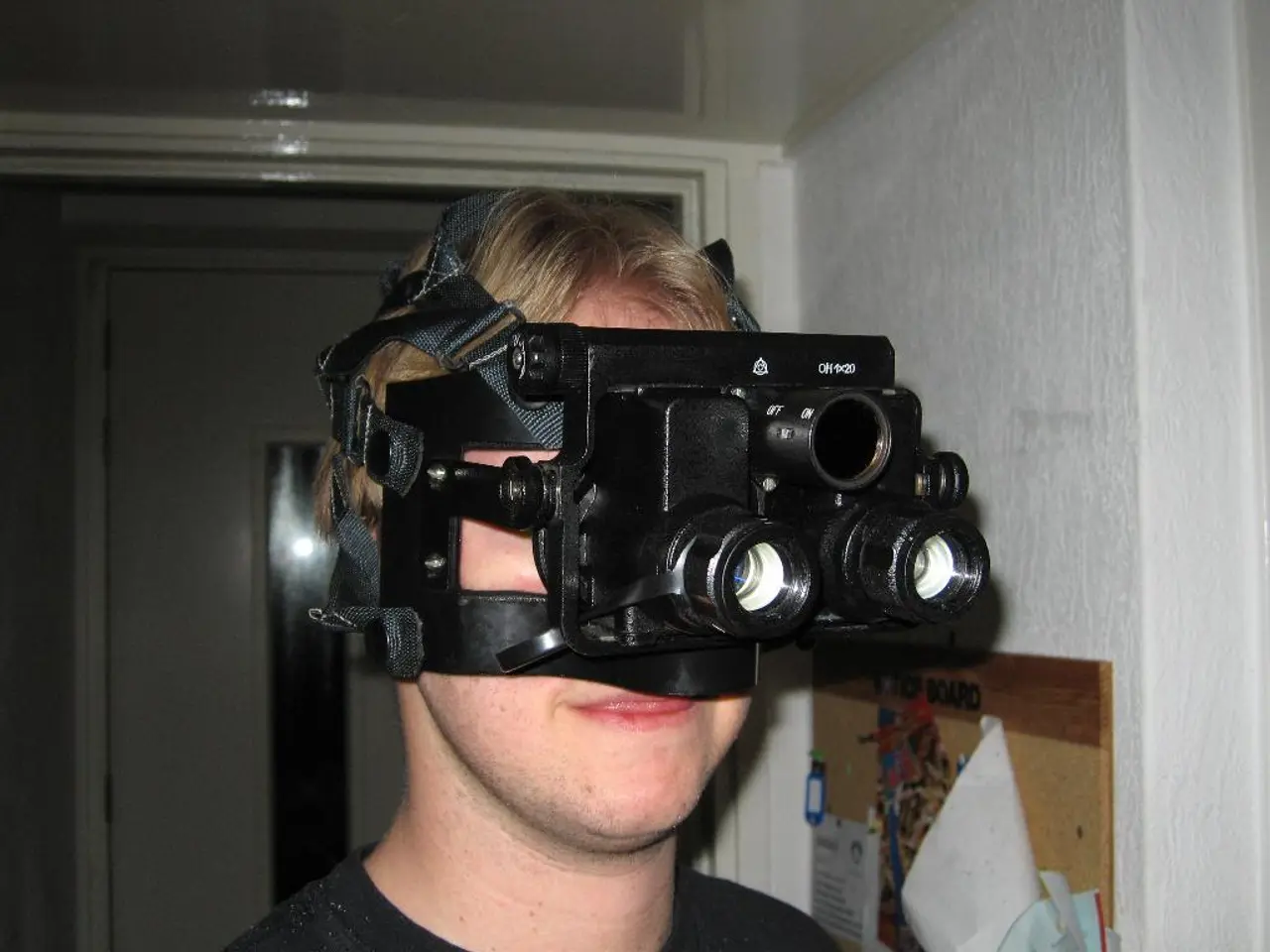Guide to Initiating Robust Virtual Reality Applications in Elderly Healthcare Services
Virtual Reality (VR) is revolutionizing the senior care sector, offering numerous benefits that improve the physical, cognitive, and emotional aspects of elderly residents' lives.
Physical and Cognitive Rehabilitation
VR enables remote, tailored rehabilitation exercises that overcome transportation and therapist availability barriers. Immersive environments motivate participation and simulate real-world physical tasks, improving balance, coordination, and movement speed. VR-based exercise programs have shown significant improvements in movement speed and a reduction in fall-related anxiety by 48%.
Mental Health Support
VR companions and applications provide mental exercise through engaging, gamified content, supporting memory, attention, and problem-solving. Immersive reminiscence therapies have been linked to measurable improvements in cognitive scores.
Emotional Well-being
VR nature experiences improve mood and emotional health, particularly for seniors with dementia, by allowing them to explore calming natural settings virtually when real outdoor access is limited. VR immersion has also been shown to decrease stress and improve quality of life in dementia patients and reduce depression and burnout symptoms in family caregivers.
Empathy and Care Quality
VR training programs for caregivers simulate dementia symptoms, helping caregivers to better understand patient experiences and deliver more compassionate, individualized care.
Health Monitoring and Personalized Care
VR companions can track health metrics and tailor wellness activities to individuals’ medical needs, making health management more engaging and interactive.
In a 2018 study at a senior care residence in Minnesota, 9 in 10 elderly adults reported feeling more relaxed and rated their well-being higher after engaging in VR sessions. Maplewood Senior Living, which launched a VR pilot program in 2017, has since expanded the effort into all of its 15 communities across three states.
VR can serve as a distraction tool for residents in memory care, potentially reducing agitation. VR headsets are being used in senior living communities to provide entertainment, reduce social isolation, and improve mental health. Monitoring user patterns and soliciting feedback may inform changes to or expansions of the VR offering.
Device hygiene is crucial, and VR headsets should be disinfected after each use with alcohol-based wipes. Older adults who use a VR system are more likely to feel positive about their health and emotions, less likely to be depressed, and less likely to feel socially isolated compared with those viewing similar content on TV.
Maplewood Senior Living uses iPad devices to program and manage VR headsets. Some VR platforms allow loved ones to upload 360-degree videos from family functions and facilitate virtual visits to museums and cultural institutions. The system used by Maplewood Senior Living is designed to reduce stress and promote well-being among older adults and those with disabilities, allowing residents to use the headsets on their own.
Responses from seniors can inform a VR program at all stages, as they did during the Maplewood VR pilot. Robust Wi-Fi infrastructure is essential for virtual reality deployments in senior care. Geyser advises locking up VR headsets between sessions to prevent loss.
Virtual reality, with its myriad benefits, is an incredibly useful staff training tool, particularly for those working with individuals living with dementia. Just more than one-third of adults age 45 and older are lonely, and extended isolation doesn't just pose a threat to the physical health of seniors; it costs an average of $134 more per month in Medicare spending. VR offers a promising solution to combat loneliness and isolation, promoting active engagement, physical and cognitive rehabilitation, emotional relaxation, and improved caregiving—fostering healthier aging, reduced isolation, and enhanced life quality.
- VR's immersive nature and ability to simulate real-world tasks make it an effective tool for fitness-and-exercise programs, particularly for senior residents, as demonstrated by significant improvements in movement speed and reduced fall-related anxiety.
- Mental-health support can be enhanced through VR by providing engaging, gamified content that supports memory, attention, and problem-solving, leading to measurable improvements in cognitive scores.
- Smart-home devices, such as VR headsets, can be used to improve mental health and emotional well-being by offering calming virtual experiences in nature, reducing stress, and improving quality of life, especially for dementia patients and their caregivers.
- In the realm of education-and-self-development and personal-growth, VR can be utilized as a staff training tool, enabling caregivers to better understand patient experiences and deliver more compassionate, individualized care through simulation of dementia symptoms.




